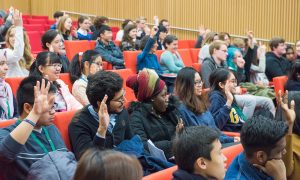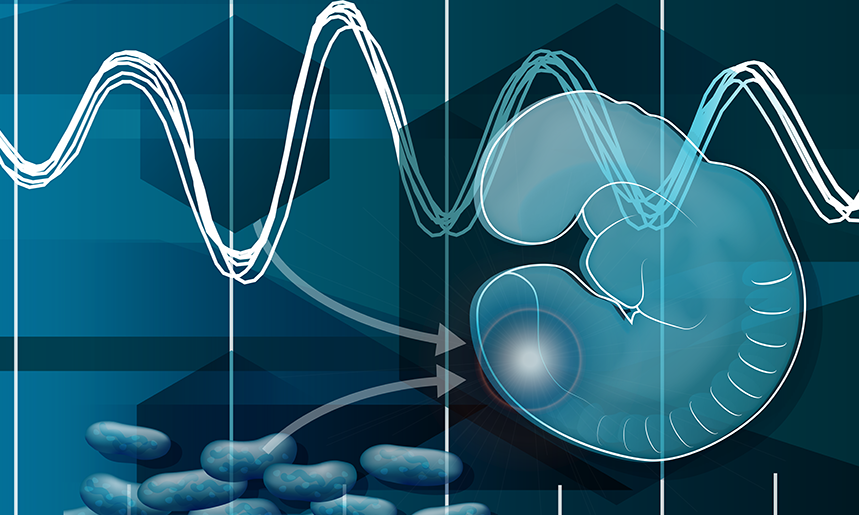
EMBL Insight Lecture 2024
“Imaging life - How modern microscopes revolutionise biology” by Dr. Robert Prevedel
Formerly known as European Learning Laboratory for the Life Sciences
Our inspiring educational experiences share the scientific discoveries of EMBL with young learners aged 10-19 years and teachers in Europe and beyond. We belong to EMBL’s Science Education and Public Engagement office.
The EMBL Insight Lecture 2018 “Rhythms of Life – how cellular clocks function in development and disease” was be presented by Dr. Alexander Aulehla on 13 December 2018.
Cellular clocks, or oscillators, are very abundant in nature. A well-known example is the circadian day-night clock that runs with a period of about 24 hours. In this EMBL Insight Lecture, Dr. Alexander Aulehla introduces a different set of cellular clocks that operate with periods in the range of only 1-2 hours and which play important roles during embryonic development and in stem cells. These cellular clocks can, in addition, become highly coordinated between neighboring cells, which leads to very unexpected and fascinating collective cellular dynamics.
Dr. Alexander Aulehla explains how we use modern microscopes to make these clock rhythms visible and how we address the underlying basic rules and functions of cellular rhythms.
• Cells differentiation and gene expression
• The role of gene expression oscillations
• How do cells establish a collective rhythm?
• Somite segmentation clock
• Real time imaging of developing embryos
• Green Fluorescent Protein (GFP)- a revolutionary tool for biology
• Cellular “phase waives” detected in vivo
• Cells self-organize themselves in time and space
• Control of signaling oscillations using microfluidics
• Circadian clocks
The EMBL Insight Lecture is available via on-demand-streaming from this website. You can watch it directly in the window below. Alternatively, you can open the EMBL Insight Lecture here.

Topic area: Developmental biology, Cell biology
Age group: 16-19
Share:

“Imaging life - How modern microscopes revolutionise biology” by Dr. Robert Prevedel

“Uncovering the origin of learning and memory - A journey into the evolution of nervous systems” by Dr. Detlev Arendt

"The shapes of life: modelling how cells self-organise" by Dr. James Sharpe